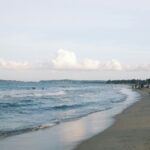Vietnam is an incredible country with stunning scenery, history, and culture, which has enchanted tourists from across the globe. With its limestone karsts and clean beaches, bustling cities and rural countryside, Vietnam is a mix of adventure, rest and exploration. Combining both modernity and old, this Southeast Asian jewel makes sure no traveller leaves it behind. In this Vietnam travel guide, we will discuss everything you need to know about travelling in Vietnam, from where to visit tips and tricks.
Location
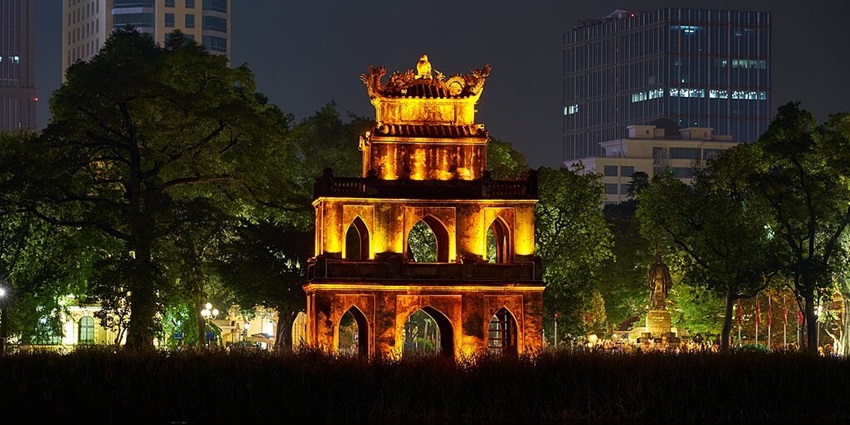
Photo: Radek Kucharski / Wikimedia Commons
Vietnam lies in Southeast Asia, bordered by China from the north, Laos and Cambodia in the west, and the South China Sea in the east and south. Its “S” shape extends roughly 1,650 km (1,025 miles) from north to south. This varying geography of Vietnam produces an assortment of climates, landscapes and cultures.
Suggested Read: Places To Visit In Vietnam
How To Reach Vietnam
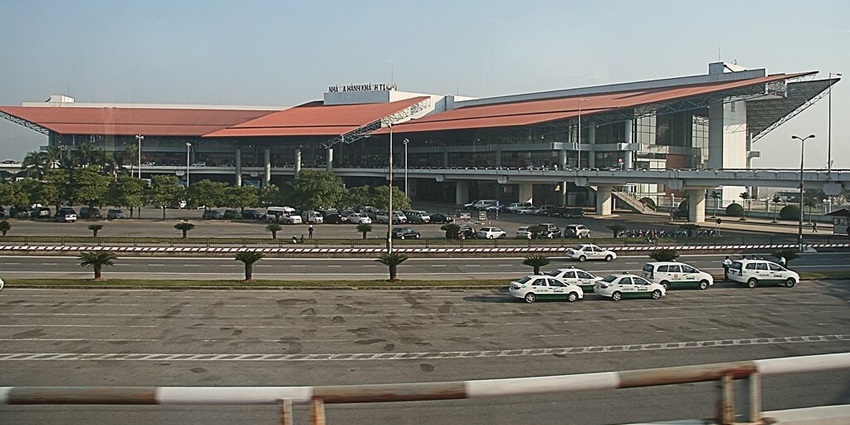
Photo: Lưu Ly / / Wikimedia Commons
By Air: Vietnam has easy access to the rest of the world via its major international airports, such as Noi Bai International Airport (Hanoi) and Da Nang International Airport. The planes depart directly from most countries in Asia, Europe, and Australia.
By Sea: If you’re coming from other islands, take a ferry to coastal cities such as Ha Long or Nha Trang. You can also reach Vietnam via cruises from other Southeast Asian nations.
By Land: Visitors from neighbouring Thailand, Cambodia, and Laos are also welcome in Vietnam through the land borders. Overland transport is served by international buses and trains.
Places To Visit In Vietnam
From the busy capital city of Hanoi to the serene Ha Long Bay, explore these popular attractions to visit in Vietnam with our Vietnam travel guide.
1. Hoi An Ancient Town
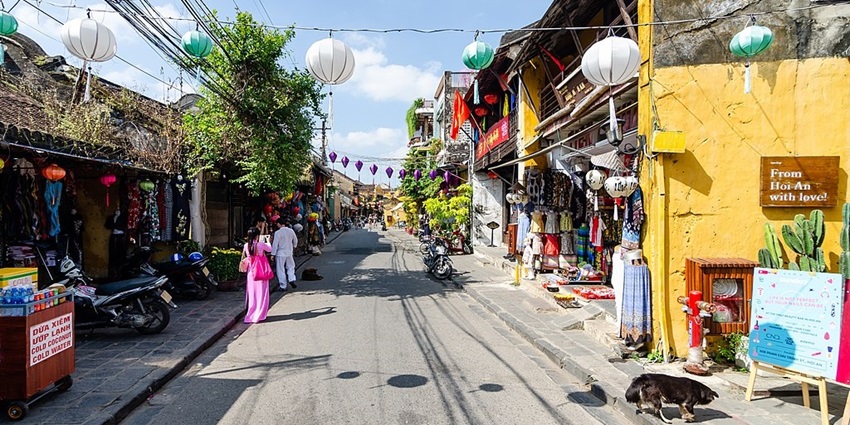
Photo: Steffen Schmitz / Wikimedia Commons
Hoi An is a lovely, ancient town that offers a glimpse into Vietnam’s past and culture. The lanes are teeming with flamboyant lanterns, colonial buildings and riverside cafes. Visit the narrow cobbled streets of the old town, visit hand-made silk crafts and take a boat ride on the Thu Bon River. Nighttime is when floating lanterns, cultural shows, and tasty street vendors fill the town. For a more immersive experience, take a cooking class or stop by a tailor for unique attire.
Location: Quảng Nam Province, Central Vietnam
Best Time To Visit: February to April
Suggested Read: Places To Visit In Hoi An That You Must Explore On Your Next Trip
2. Ha Long Bay
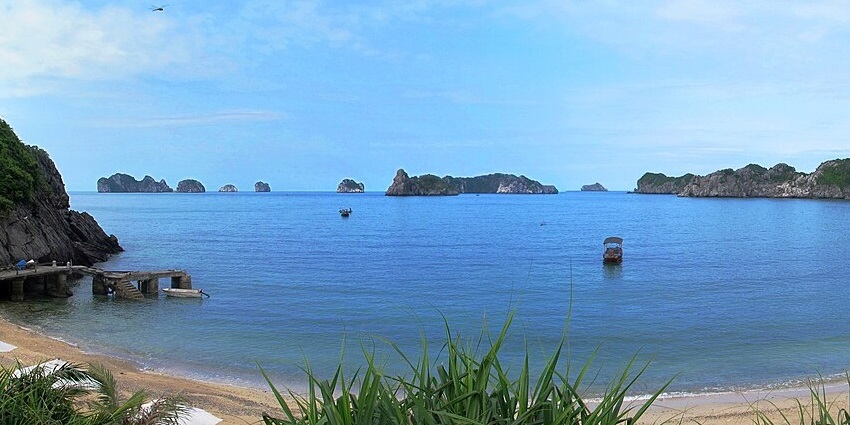
Photo: Isderion / Wikimedia Commons
Ha Long Bay is given a UNESCO World Heritage site tag and is known for its clear waters and thousands of limestone islands dotted by vegetation. It is recommended to cruise around the bay on a boat, where you can see caves, floating fishing towns and beautiful beaches. You can kayak into dark lagoons, snorkel in clear waters, or hike to the islands for amazing views. For an ultimate experience, consider a nightly cruise with meals, entertainment, and incredible sunrises.
Location: Quảng Ninh Province, Northern Vietnam
Best Time To Visit: October to April
3. Hanoi
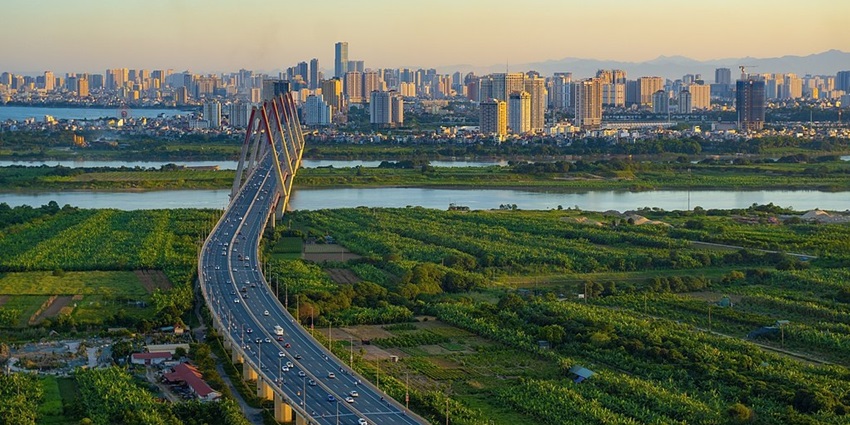
Photo: NKSTTSSHNVN / Wikimedia Commons
Vietnam’s capital, Hanoi, is at once classical and modern. The Old Quarter is a bustling alleyway filled with Vietnamese street food and local crafts. Visit places such as the Ho Chi Minh Mausoleum, Temple of Literature, and Hoa Lo Prison to learn about the history of Vietnam. Go for a water puppet show, the traditional attraction in the region, and chill out at Hoan Kiem Lake, an idyllic place in the heart of the city. Coffee culture is also quite prominent in Hanoi, with many popular places offering egg coffee and coconut coffee.
Location: Northern Vietnam
Best Time To Visit: September to November, March to April
Suggested Read: Places To Visit In Hanoi
4. Phong Nha-Ke Bang National Park
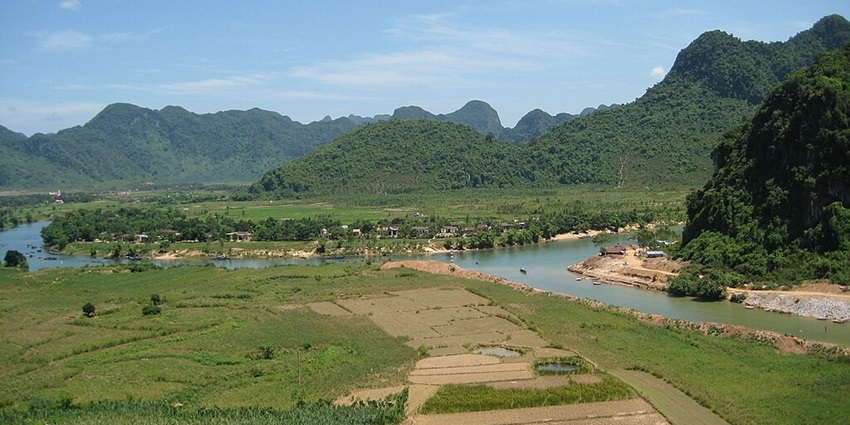
Photo: Genghiskhanviet / Wikimedia Commons
This UNESCO World Heritage Site is a wilderness haven for wildlife and outdoor enthusiasts. The park has some of the world’s largest cave complexes, including the iconic Son Doong Cave, the world’s biggest cave. Paradise Cave and Phong Nha Cave are renowned for their naturalist-like stalactites and stalagmites. Trekking, paddling, and seeing wildlife are popular tourist attractions. You can also go on underground rafting trips or zipline through tropical forests. The biodiversity and natural splendour of the park will make this an unmissable experience.
Location: Quảng Bình Province, Central Vietnam
Best Time To Visit: February to August
5. Ho Chi Minh City
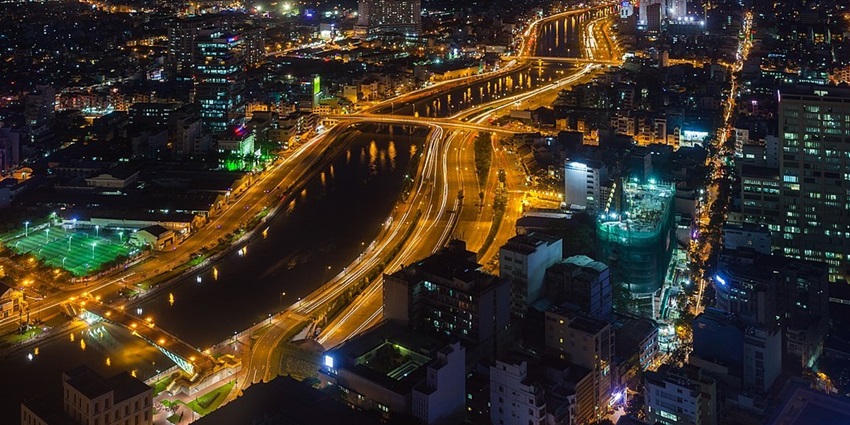
Photo: Diego Delso / Wikimedia Commons
Ho Chi Minh City, also known as Saigon, is a vibrant city full of culture and an exciting atmosphere. It is dominated by colonial architecture, bustling bazaars and modern office towers. The War Remnants Museum, Notre Dame Cathedral and the Cu Chi Tunnels provide a rare glimpse into Vietnam’s history of war. It is lively at night, and the rooftop bars, night markets, and clubs offer variety. If you want something more tactile, you can take a motorbike food tour to explore the city’s best restaurants.
Location: Southern Vietnam
Best Time To Visit: December to April
Suggested Read: Places To Visit In Ho Chi Minh City To Make Your Trip Memorable
6. Sapa
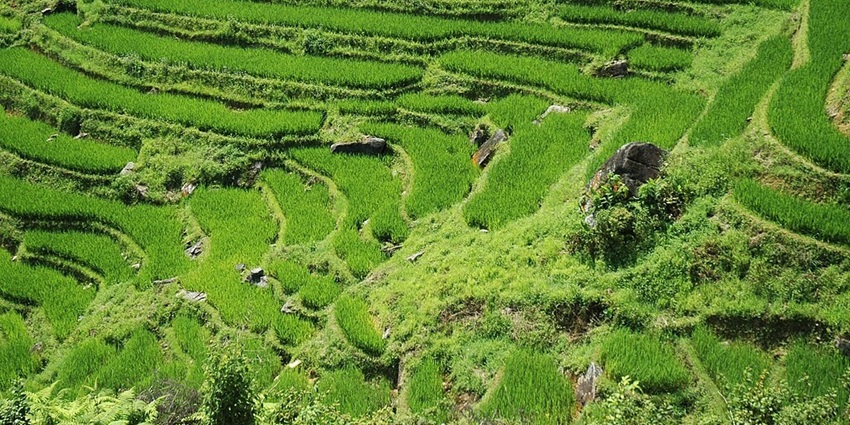
Photo: Alphab.fr / Wikimedia Commons
Sapa is a hill station in the Hoang Lien Son Mountains with terraced rice paddies and ethnic minority populations. Hiking in the mountains, seeing traditional villages, and encountering the Hmong and Dao people are immersive cultural experiences. The summit of Fansipan Mountain in Vietnam is challenging for mountain climbers, and it is accessible via cable car. Sapa is cool, bursting with markets, and has breathtaking scenery that makes it an ideal destination for both nature and culture lovers.
Location: Lào Cai Province, Northern Vietnam
Best Time To Visit: March to May, September to November
7. Nha Trang
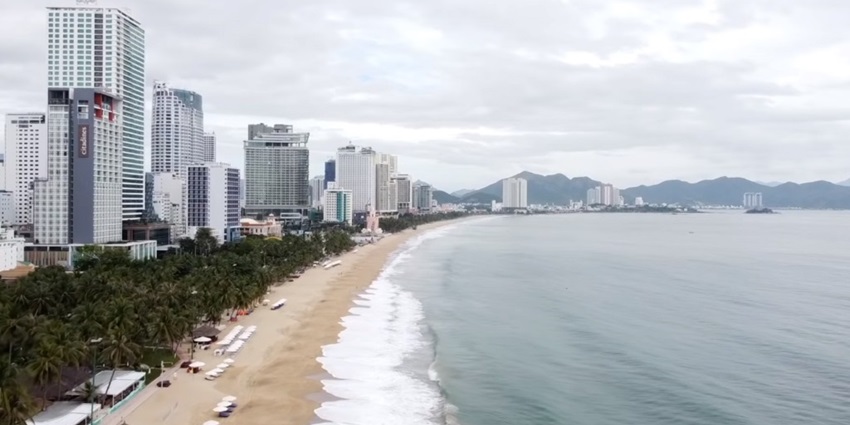
Photo: Chris Lewis / Wikimedia Commons
Nha Trang is a city on the seaside, renowned for its clean beach, high-end resorts, and nightlife. The bluish waters are perfect for swimming, snorkelling, and diving to visit coral reefs. Vinpearl Land, Long Son Pagoda and Po Nagar Cham Towers are the major points of interest. A cruise to nearby islands such as Hon Mun and Hon Tam provides great scenery and activities such as parasailing. There is also seafood at the beaches of Nha Trang. Whether you’re looking for adventure or a laid-back vacation, Nha Trang offers the ultimate seaside trip.
Location: Khánh Hòa Province, Southern Vietnam
Best Time To Visit: February to May
Suggested Read: Beaches In Nha Trang
Where To Stay In Vietnam
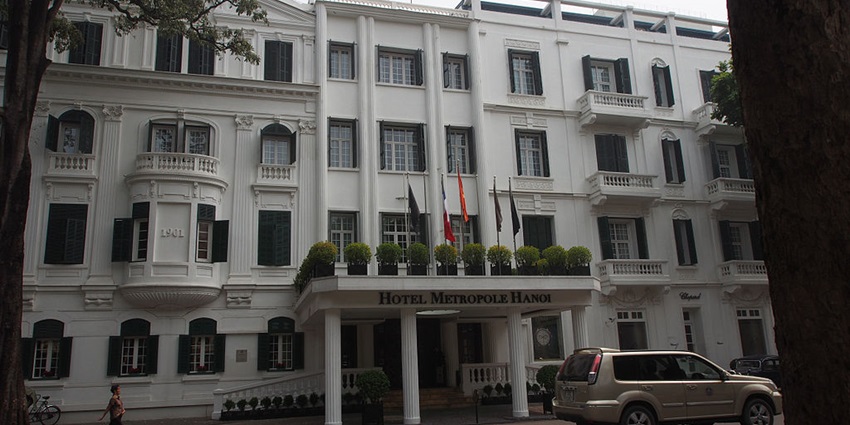
Photo: Clay Gilliland / Wikimedia Commons / Image For Representation Only
Vietnam has a wide variety of accommodations available for different budgets and needs. Stay in Hanoi’s Old Quarter and enjoy easy access to attractions and street markets. For high-end tourists, Sofitel Legend Metropole Hanoi is a popular choice, and budget travellers can pick charming boutique hotels or hostels. Hoi An also provides cheap homestays and mid-range hotels close to the old town, including Little Riverside. When it comes to beach holidays, Nha Trang and Da Nang have luxurious resorts such as InterContinental Danang Sun Peninsula Resort.
Where To Eat In Vietnam
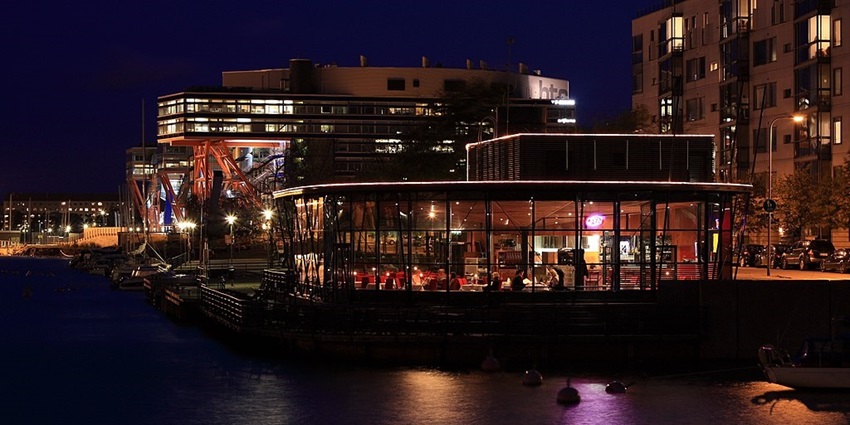
Photo: MattiPaavola / Wikimedia Commons / Image For Representation Only
Vietnam is an enthralling place to indulge yourself with its cuisines of fresh products, edgy flavours and unique regional specialities. Pho Thin: Pho Thin serves pho (noodle soup) or Cha Ca La Vong, cha ca (turmeric fish). There are also street vendors in the Old Quarter who sell bun cha (grilled pork and noodles). You can go to Ben Thanh Market in Ho Chi Minh City for street food or local cafes and restaurants for banh xeo (puffy pancakes) and hu tieu (noodle soup). Hoi An is the home of Cao lau noodles and white rose dumplings. If you want something special, head to La Maison 1888 in Da Nang, one of the most posh restaurants in Vietnam.
Suggested Read: Discover Vietnam Nightlife For Singles On Your Journey To Southeast Asia
Other Factors To Consider
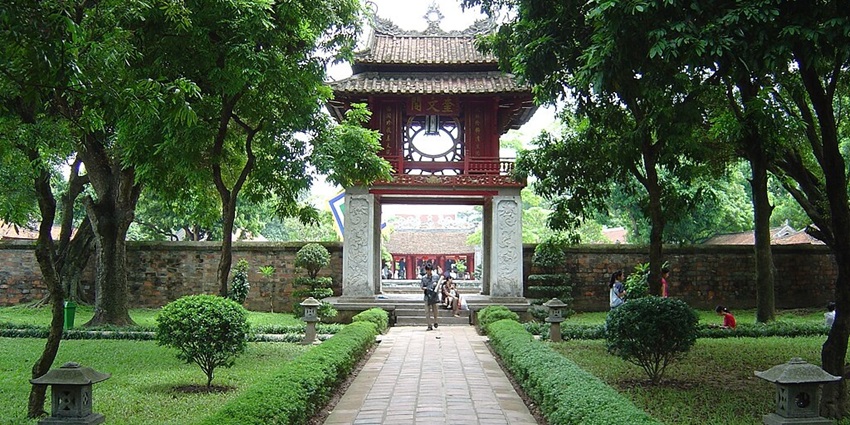
Photo: Chuoibk / Wikimedia Commons / Image For Representation Only
Money: Vietnam’s national currency is the Vietnamese Dong (VND). ATMs are ubiquitous but carry some cash.
Transport: Get cheap, reliable rides on apps such as Grab. Buses and trains work fine if you travel long distances.
Speaking Vietnamese: Easy Vietnamese words can help you communicate with locals.
Vietnam truly is a place suitable for everyone, whether you’re an adventurer, a history lover or a foodie. It is a place of stunning nature, cultural diversity, and friendliness, which makes it an all-time favourite destination. Whether it’s cruising through the cities, sunbathing on the sandy shores or climbing the lush mountains, Vietnam will leave you spellbound and eager to return. Plan your journey to Vietnam with TripXL and enjoy this beautiful nation.
Cover Photo: Nguyen Thanh Long / Wikimedia Commons


 WhatsApp
WhatsApp
 Twitter
Twitter

